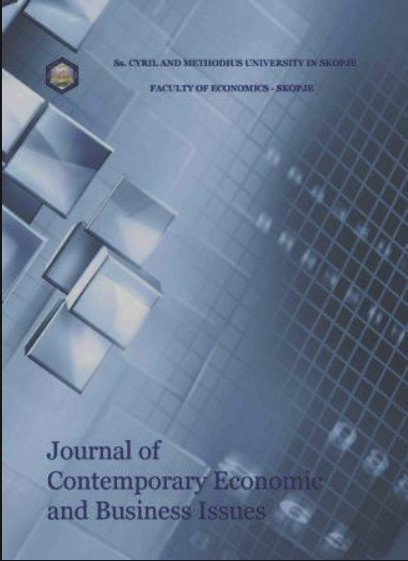FINANCIAL CRISIS IMPLICATIONS ON THE FISCAL AND MONETARY POLICY OF EU COUNTRIES WITH ECONOMETRIC MODELING SUPPORT
FINANCIAL CRISIS IMPLICATIONS ON THE FISCAL AND MONETARY POLICY OF EU COUNTRIES WITH ECONOMETRIC MODELING SUPPORT
Author(s): Marijana IlievaSubject(s): Economic history, Economic policy, Comparative politics, Transformation Period (1990 - 2010), EU-Approach / EU-Accession / EU-Development, Financial Markets, Fiscal Politics / Budgeting
Published by: Економски факултет - Скопје, Универзитет „Св.Кирил и Методиј“
Keywords: Financial crisis; fiscal and monetary policy; transmission mechanism; budget balances; econometric background;
Summary/Abstract: The financial crisis that hit Europe in 2008 affected many spheres of the EU members’ economies. It had drastic effects on the countries’ economic activity, consumer spending, banking system liquidity, as well as negative impacts on interest rates and budget balances of the EU member states. This paper will examine the reaction of the EU member counties to the financial crisis, specifically, the use of fiscal and monetary policy to deal with such negative shock, with greater emphasis on the econometric support and background of these practices. Although extensive research and conclusions can be made by analyzing the response and results of the policies to the financial crisis, this paper aims to provide concrete econometric support to some of the practices derived from the crisis. Econometric modeling will be carried out in order to give stronger support to previous statements concluded in the paper and test relationships between certain variables. All econometric analyzes were made using the EViews software package.
Journal: Journal оf Contemporary Economic аnd Business Issues
- Issue Year: 7/2020
- Issue No: 1
- Page Range: 41-56
- Page Count: 16
- Language: English

